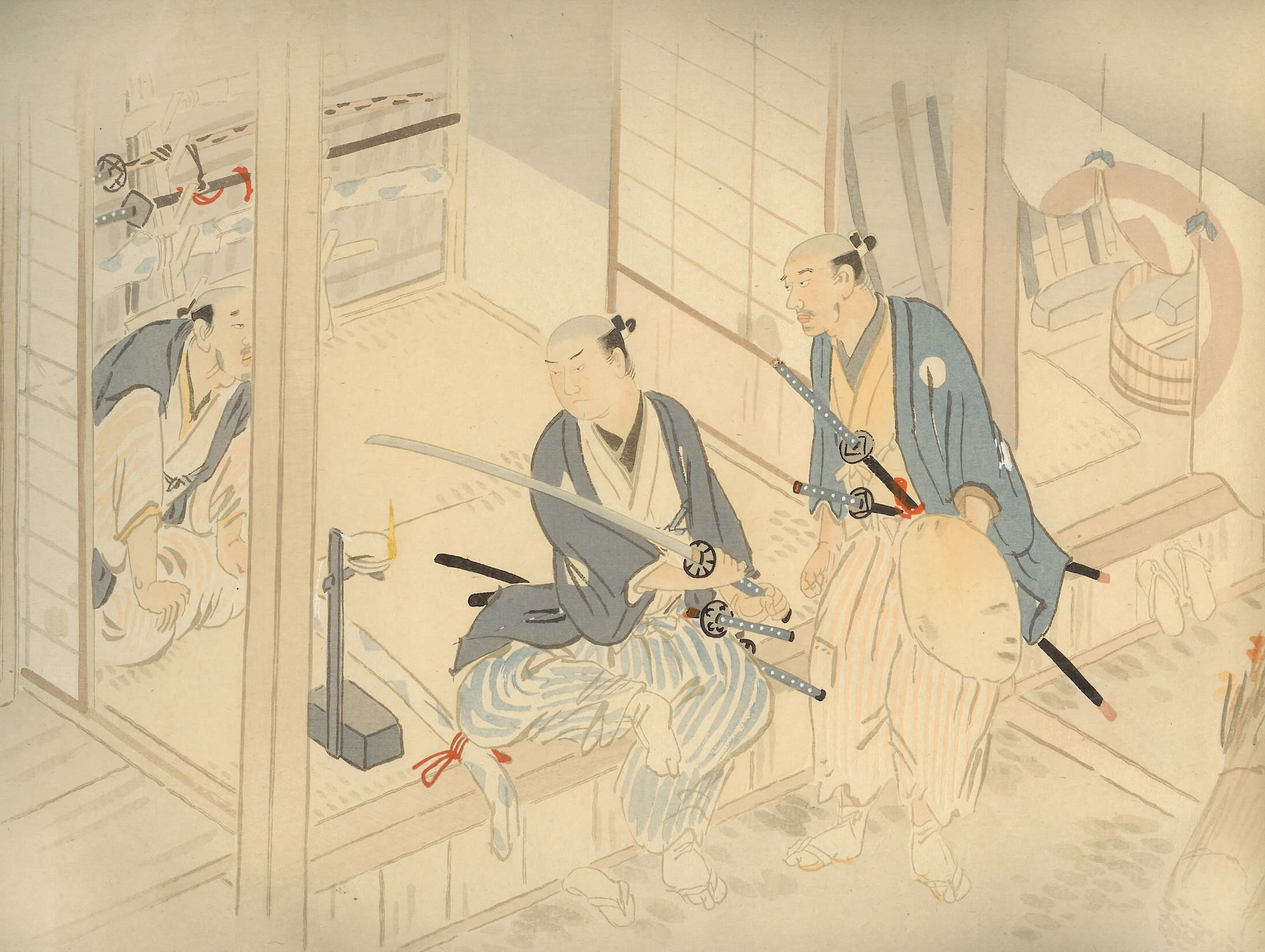
Thoughts

Make Haste Slowly
Onno Kokei
National Living Treasure Polisher of Japan

As with any craft involving the preservation of a tangible item, there must be great care taken that the work is not indiscriminately applied, and by this edict alone, it is a skill that can only be acquired through years of study. A student of Togi will dedicate ten years of his life for introduction and application, and the remainder of his life in pursuit of devoted study and the quest for perfection of his trade.
Study is not limited to just technique and application of the actual work of polishing. They will learn to Kantei or appraise a sword. This appraisal is not the same as western concept of intrinsic value, but that of identity of many things including age, by which smith or school was it forged, the authenticity of its signature, and many other critical bits of information that will lead determination of how best to preserve the sword. They will learn to repair the blades that have been damaged or flawed in such a way that only replacement or movement of metal can correct the wrong. The polishing student will learn Oshigata, or making rubbings and tracings of swords that have been the form of sword documentation and archives for over 400 years.
A polisher will apply the cumulative knowledge of all prior experience each time a sword is studied and restored, which in turn will strengthen their base for the next job. The craft is long in associated tasks and not to be lightly ventured.
Whatever we have done with our lives makes us what we are when we die. And everything, absolutely everything, counts.
Sogyal Rinpoche
Author of The Tibetan Book of Living and Dying

Once his instructor has deemed the polisher proficient at his trade he will set out into the world and begin the task of proving worth. There are no “diplomas” in Togi, and unlike Sword Smiths, there is no license required. However a polisher will sustain contently or starve bitterly, dependent upon the reception of his work.
Good reviews will travel by foot, bad ones by strong wind. So indeed the polisher will succeed by his work, or wither from lack of acceptance or respect of it. No polisher gets rich by monetary terms by the trade, and knows full well that his wealth will be emotional and soulful. They must reserve themselves to this from the start. Any thoughts otherwise will be their immediate and disappointing downfall.
They will be guides to the sword enthusiasts and caretakers of history. The craft is heartfelt, and threaded with Zen. Satisfaction will be earned through austere discipline and many hours of painstaking work. Gratification for the polisher will come from the emotion of the beholder.

